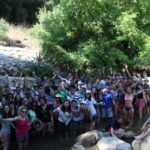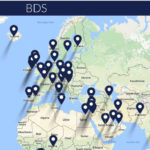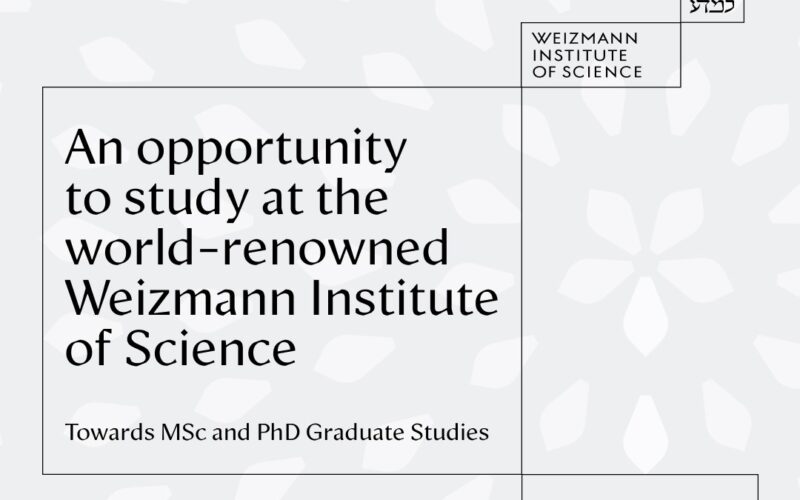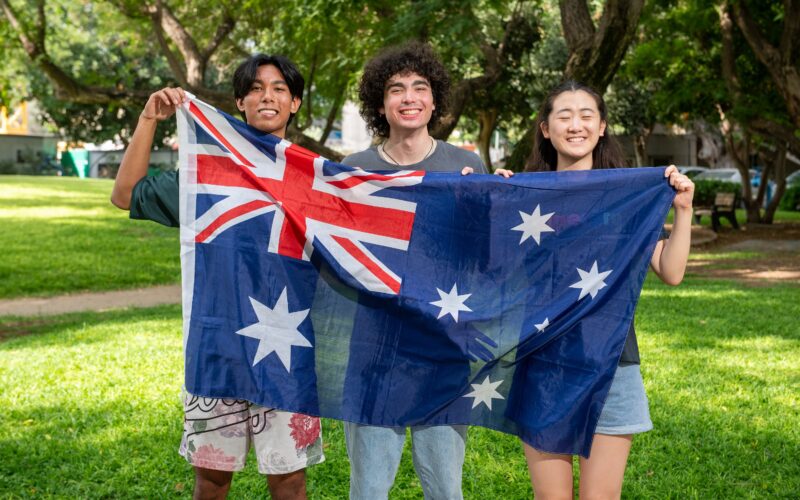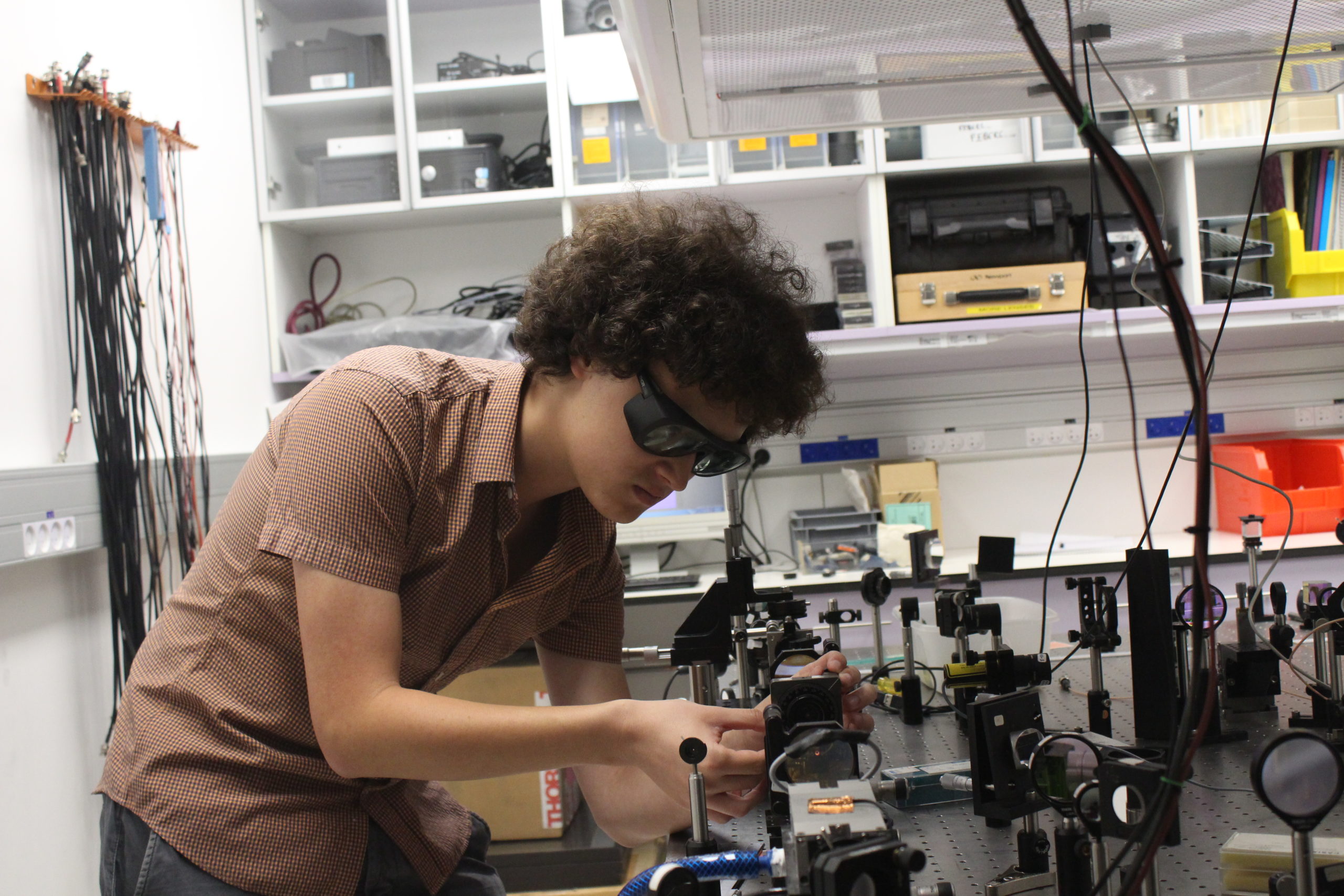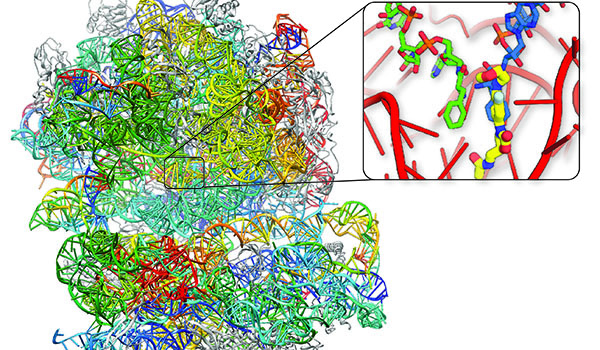
June 2, 2017
Eight years ago he was a postdoctoral student of Nobel Laureate, Professor Ada Yonath of the Weizmann Institute of Science, spending three years in Israel studying. Now Dr Matthew Belousoff of Monash University’s Biomedicine Discovery Institute (BDI), is collaborating with his mentor and friend to unravel the molecular structures of antibiotic-resistant superbugs, which pose such an enormous threat to human health.
A key breakthrough of this collaboration recently reported, was that for the first time, the molecular structure of the vital cellular nano-machine that translates the genetic code to proteins in every living cell, including the most deadly superbug called ‘Golden Staph’ or staphylococcus aureus, has been mapped at high detail, providing scientists with the first solid clues as to how this bug beats antibiotics and how drugs can be ‘retooled’ to counteract.
The breakthrough is timely as Australian Health Minister Greg Hunt just announced that the government will invest $5.9 million into fighting these deadly superbugs, which are killing thousands of Australians, including hospital patients each year. A Review on Antimicrobial Resistance also estimates that by 2050, infections that cannot be treated with antibiotics will kill 10 million people a year – on a par with cancer and diabetes.
According to Dr Belousoff the funding could therefore not come at a better time.
“We are really making good progress and these funds will help us to fast track research and invest in more hands on deck to continue to test, gather data and undertake the painstaking analysis required to provide the answers,” he said.
But how did this partnership with Weizmann, which has had such a major breakthrough, occur?
According to Dr Belousoff it was during a social catch up “over a beer” with Professor Yonath when she visited Melbourne University to deliver a seminar.
“We had not seen each other for some time, so we just chatted about what we could do together in terms of our mutual interests in antibiotic research and thought collaborating would be a good idea. It just evolved through our friendship and shared interests,” he said.
Dr Belousoff explained that the process was very much team work, which included input from Nanyan Technological University (NTU) in Singapore, which invited a Weizmann’s doctoral student to collaborate on such projects and provided their most modern equipment to gather data about superbug structures.
In turn, at the Monash Ramaciotti Centre for Electron Microscopy, Dr Belousoff and his team used its state of the art electron microscope to study Golden Staff and how its structure changes during the antibiotic resistance process.
“Our electron microscope produces near atomic levels of visualisation of molecules inside these bacteria so we are now entering into an age of amazing discovery thanks to this ever evolving technology,” he said.
“Having the two teams simultaneously utilising the most up to date technology helped us to gather data faster, hence we achieved some great results reasonably quickly,” said Dr Belousoff.
“Overall this combined data helped us find out how the bacteria escapes treatment from the most important life-saving antibiotics and describe in molecular detail how it becomes a superbug. The bacteria is very clever as it mutates to change the shape of the molecule to which the antibiotic would bind, hence it can no longer do so.
“It really is a case of knowing your enemy and in doing so we can move forward in developing new drugs to combat these superbugs.”
Dr Belousoff has not been to Weizmann since he completed his postdoc, so what are the chances of him returning?
“I would love to return as Weizmann really is an oasis in more ways than one, both physically and scientifically – the work it does is truly free flowing and inspirational. In reality, there could be a chance soon as Weizmann has decided to allocate over $6 million Euros, to acquire state of the art microscopes so I would love to go when it is installed and help out where I can,” he said.
Professor Yonath said she encourages Dr Belousoff’s return, as she welcomes all researchers and students to visit and collaborate on significant scientific projects, similar to the studies performed with Monash, which shows “the power of collaboration”.
As for next steps, Dr Belousoff said they are undertaking the same type of analysis on the bacteria Enterococcus, which is a bug that has become resistant to Vancomycin. At Monash they are also working with chemists to redesign antibiotics and test them using their powerful microscope which will allow them to see if the new chemical compound actually works.
“These superbugs are really quite amazing and their resistance to antibiotics shows how natural selection works in nature. We have many things to look at, particularly the over-use of antibiotics in food production and in health treatment, there is a responsibility here and changes will need to be made in consumption as well as developing new drugs,” concluded Dr Belousoff.

The protein-making machine from Golden Staph, the bacterial ribosome (Main picture). It is this nano-machine that evolves to escape treatment by antibiotics, which are small chemicals that have the ability to turn this machine off, by literally throwing a spanner in the works (inlay picture) (Source: Monash Univeristy Biomedicine Discovery Centre)
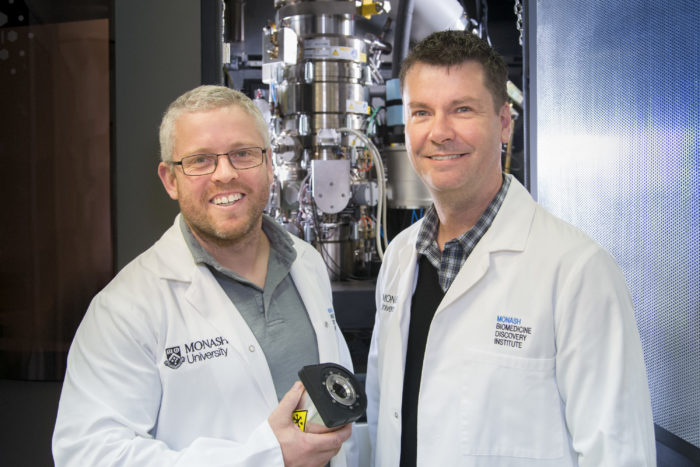
Dr Matthew Belousoff with colleague Professor Trevor Lithgow of Monash University's Biomedicine Discovery Unit
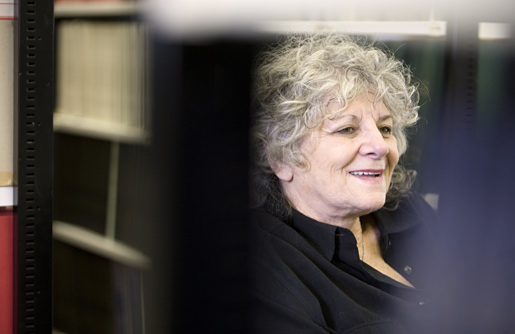
Professor Ada Yonath in the Weizmann Institute library. (Source: www.nobelprize.org; Photographer: Micheline Pelletier/Corbis)
Tagged: Ada Yonath, antibiotic resitence, BDI, Israel, Matthew Belousoff, Monash, Nobel Prize, superbugs, Weizamnn

